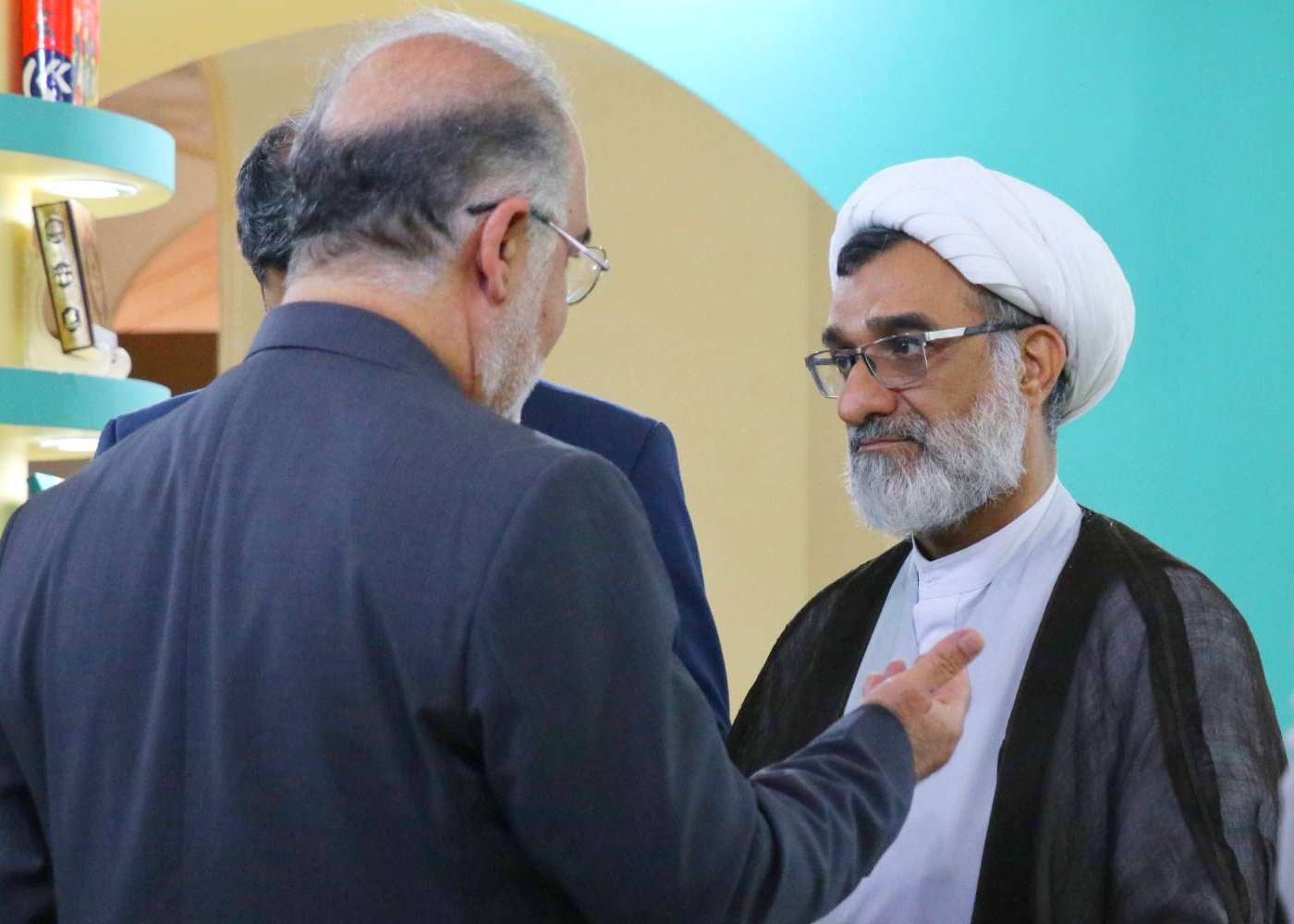
Secretary of the Supreme Council of the Cultural Revolution Offers a Solution to Reduce Book Printing Costs
1404/02/20-17:17
While visiting the Tehran International Book Fair, Abdolhossein Khosropanah highlighted the cultural significance of the event and stated that self-sufficiency in paper production and using local resources can lower the cost of producing paper—and ultimately books—thereby encouraging greater public interest in reading.
Speaking with the news team of the 36th Tehran International Book Fair, the Secretary of the Supreme Council of the Cultural Revolution expressed gratitude to the Ministry of Culture and Islamic Guidance and its Cultural Affairs Division for organizing this year’s fair with even more grandeur than previous years.
He emphasized the value of such large-scale cultural events and noted the strong presence of both booksellers and publishers, as well as the warm and enthusiastic attendance by the public. “We’re seeing a wide range of books and publishers catering to different tastes,” he said.
Khosropanah stressed the importance of variety in cultural productions: “From novels to children's and young adult books, as well as specialized works in Islamic sciences, philosophy, music, and basic engineering—we’re witnessing diversity across all genres. The fair must grow more vibrant each year so book enthusiasts can discover, purchase, and benefit from these works.”
He added, “In the current economic climate, support is crucial. Book printing has become expensive, especially because of high paper costs. If we achieve self-sufficiency in paper production within the country, the cost of publishing books will decrease, and rising foreign exchange rates won't impact book prices. Right now, we rely on paper imports, so when the dollar rises, so do printing costs.”
He pointed to successful models like Indonesia and Malaysia, which have reached self-sufficiency in this area and even begun exporting paper. “Using farmlands and trees that don't require much water can lead to domestic paper production. Stone paper is also an emerging technology available in Iran. If we move in that direction, both paper and books can become more affordable for consumers.”
Finally, Khosropanah reaffirmed the Council’s full support for books and reading. “The Council has approved initiatives related to promoting a reading culture and has backed efforts from the National Library Foundation and the Ministry of Culture and Islamic Guidance. Within both the Supreme Council and its subsidiary, the Public Culture Council—which is under the Ministry’s supervision—there are great capacities, and we’re ready to help as always, without reservation.”
The 36th Tehran International Book Fair is being held from May 6 to May 16, 2025, at the Imam Khomeini (RA) Mosalla under the slogan “Let’s Read for Iran.” In addition to the physical fair, a virtual version is accessible at book.icfi.ir, offering remote book purchasing for enthusiasts.



 بازگشت
بازگشت


